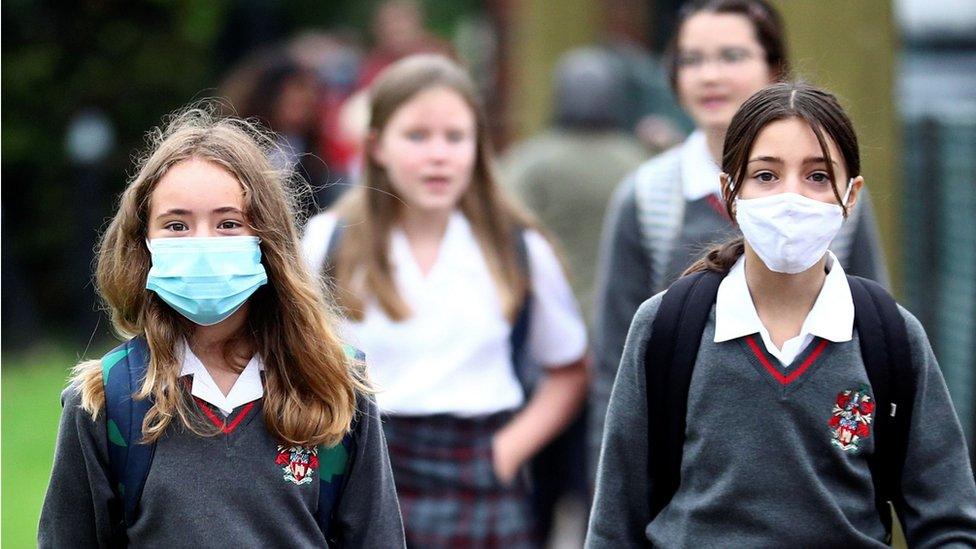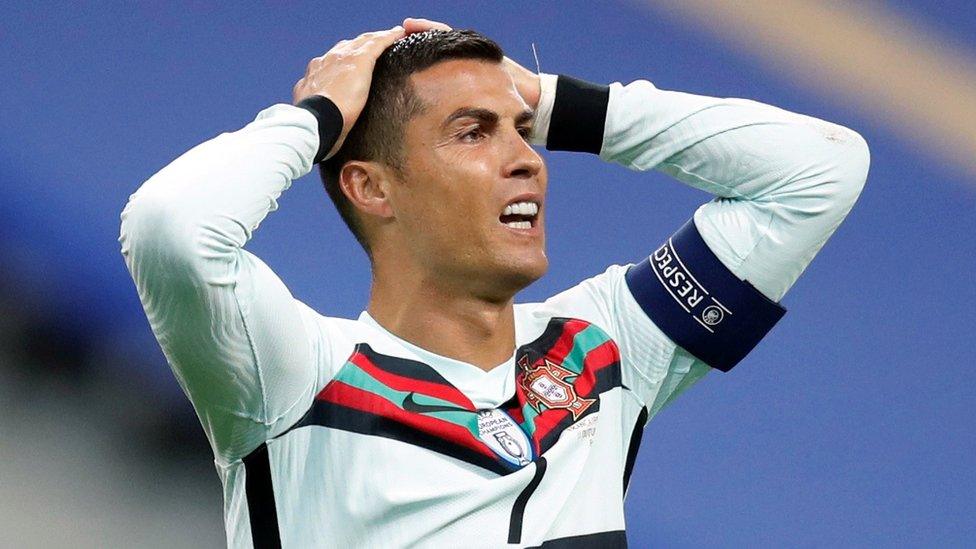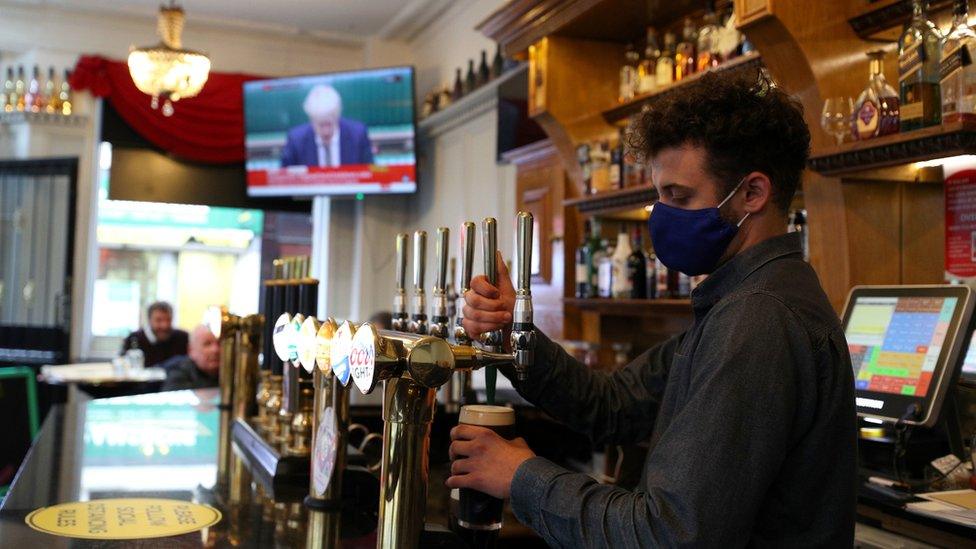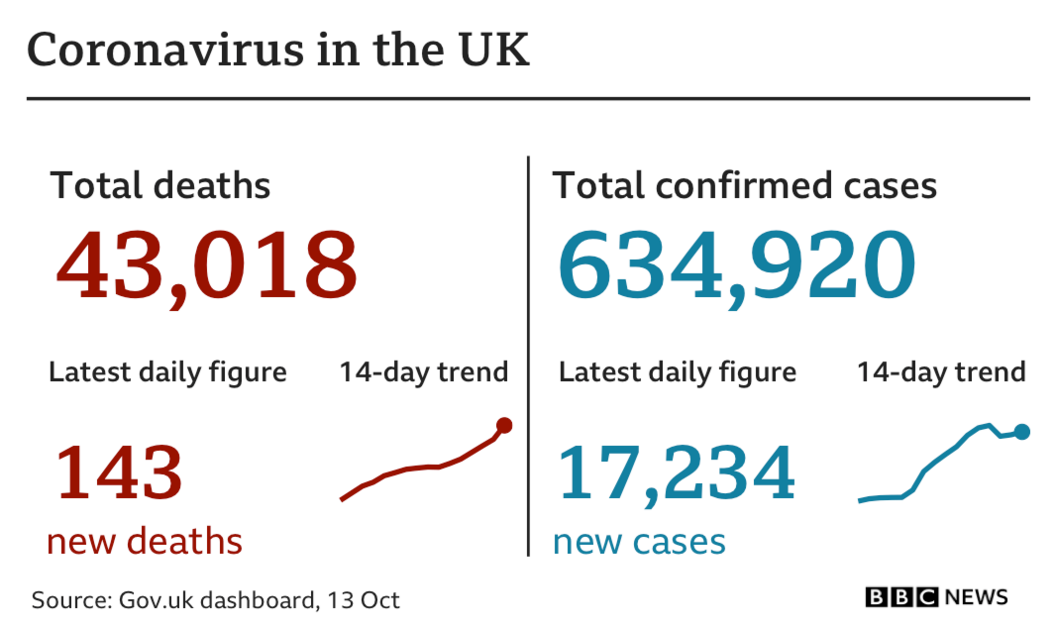Covid-19: Labour calls for short lockdown in England, and Ronaldo tests positive
- Published
Here are five things you need to know about the coronavirus pandemic this Tuesday evening. We'll have another update for you on Wednesday morning.
1. Labour calls for two to three weeks of stricter national lockdown
Sir Keir Starmer, the Labour leader, has called for a "circuit-breaker" - a short lockdown of two to three weeks across England. He suggested it would be "very similar" to the first lockdown in March but schools would remain open. His intervention comes after documents revealed government scientific advisers called for such a move three weeks ago. Health Secretary Matt Hancock has defended the new measures after criticism that the government ignored scientists' advice. Tuesday's figures showed a further 143 people in the UK had died with the virus - more than double the previous day's figure.
Sir Keir Starmer says a two to three week “circuit break” in England will require “significant sacrifices”

2. Mayors hit out at England's new three-tier system
There's been lots of reaction today to the government's new three-tier system of lockdown restrictions. They come into force tomorrow and are explained fully here. Some local leaders are resisting their area being put into higher alert levels - which means tougher restrictions and businesses closing - while other areas, like Essex, want to become more locked down. Greater Manchester's mayor Andy Burnham said the system was "fundamentally flawed". London's mayor Sadiq Khan said the city could be put in a stricter lockdown within days. And one business owner in Liverpool, on the highest alert level from Wednesday, said some of her staff have been crying because of the worry about whether they'll lose their job.
Sadiq Khan backs calls for a strict "circuit breaker" lockdown in London to avoid longer restrictions later on

3. Secondary school disruption worsening in England
The number of secondary schools in England sending home pupils because of coronavirus is increasing rather than diminishing, the latest official figures show. More than one in five secondary schools are now counted as not fully open - up from 18% the previous week and 8% in mid-September. This is usually because they have sent home pupils in response to Covid-19 cases.

Very few schools are completely closed - only 0.2% of schools

4. Ronaldo tests positive for coronavirus
Portugal footballer Cristiano Ronaldo has the virus - but is said to be "doing well, without symptoms and in isolation". He posted a selfie with the rest of the Portugal squad on social media on Monday night, external - but everyone else in the team has been tested and are negative. Portugal face Sweden in a Nations League group game on Wednesday. Read the full story here.

Ronaldo played in Portugal's 0-0 draw with France on Sunday

5. Is a pasty enough to keep a pub open?
That's the type of question that pub landlords in Liverpool are facing. The city is in the top tier of lockdown restrictions - meaning that pubs can only open if they serve "substantial meals". There's been a lot of confusion - and joking on social media - about what that means. Government minister Robert Jenrick tried to clear the confusion up, saying a pasty on its own doesn't count but if you stick a salad or chips on the plate with it, you could be all right.

Pubs in Liverpool will have to shut on Wednesday unless they serve substantial meals


And don't forget...
Find more information, advice and guides on our coronavirus page.
Plus, with different areas of England now divided into three different lockdown rankings, check Covid restrictions in your area.


What questions do you have about coronavirus?
In some cases, your question will be published, displaying your name, age and location as you provide it, unless you state otherwise. Your contact details will never be published. Please ensure you have read our terms & conditions and privacy policy.
Use this form to ask your question:
If you are reading this page and can't see the form you will need to visit the mobile version of the BBC website to submit your question or send them via email to YourQuestions@bbc.co.uk, external. Please include your name, age and location with any question you send in.

ILLEGAL LOCKDOWN RAVES: Annie Mac on Coronavirus Newscast
FOOD REVOLUTION: Is the way we produce and buy food set to change for good?
